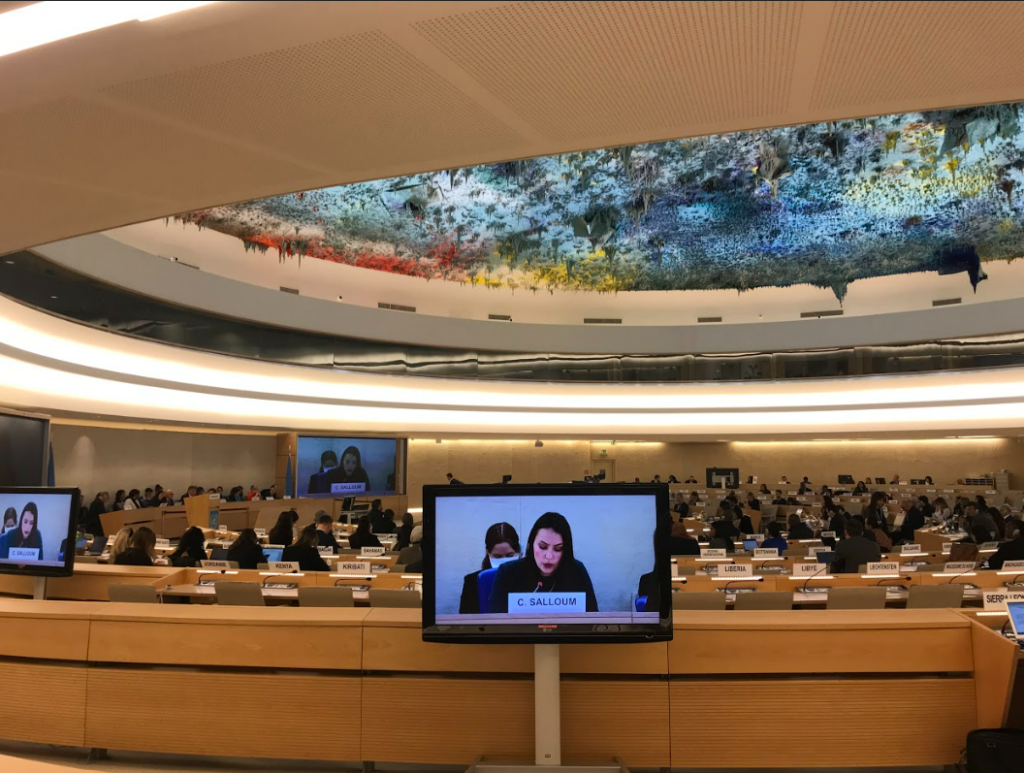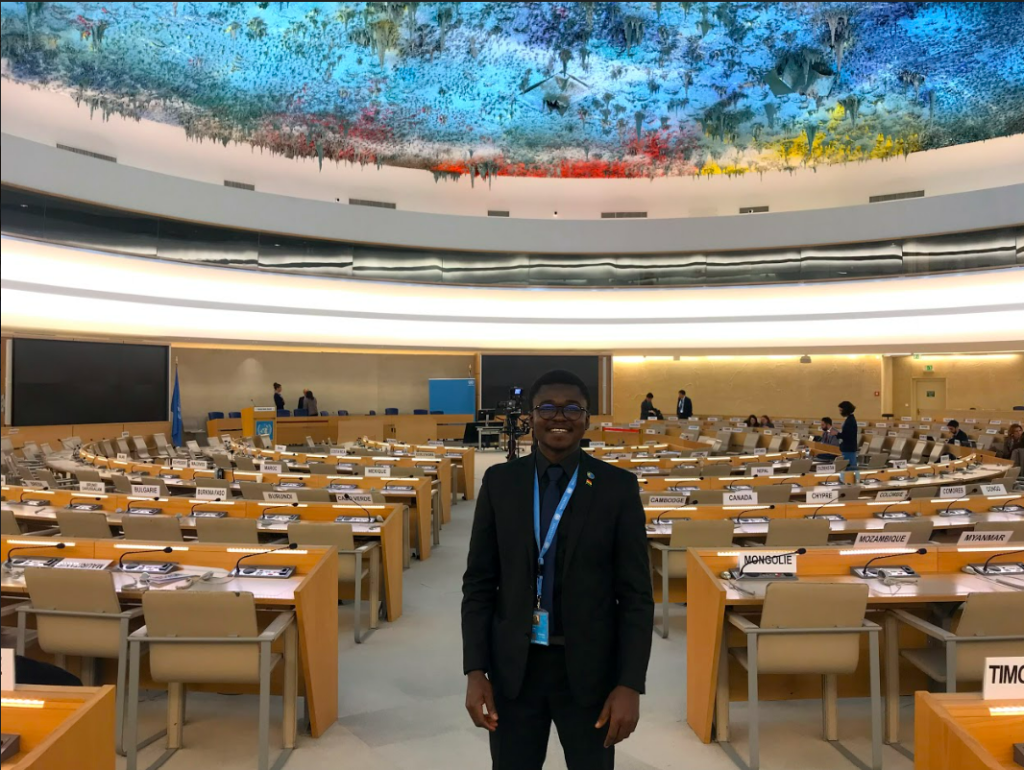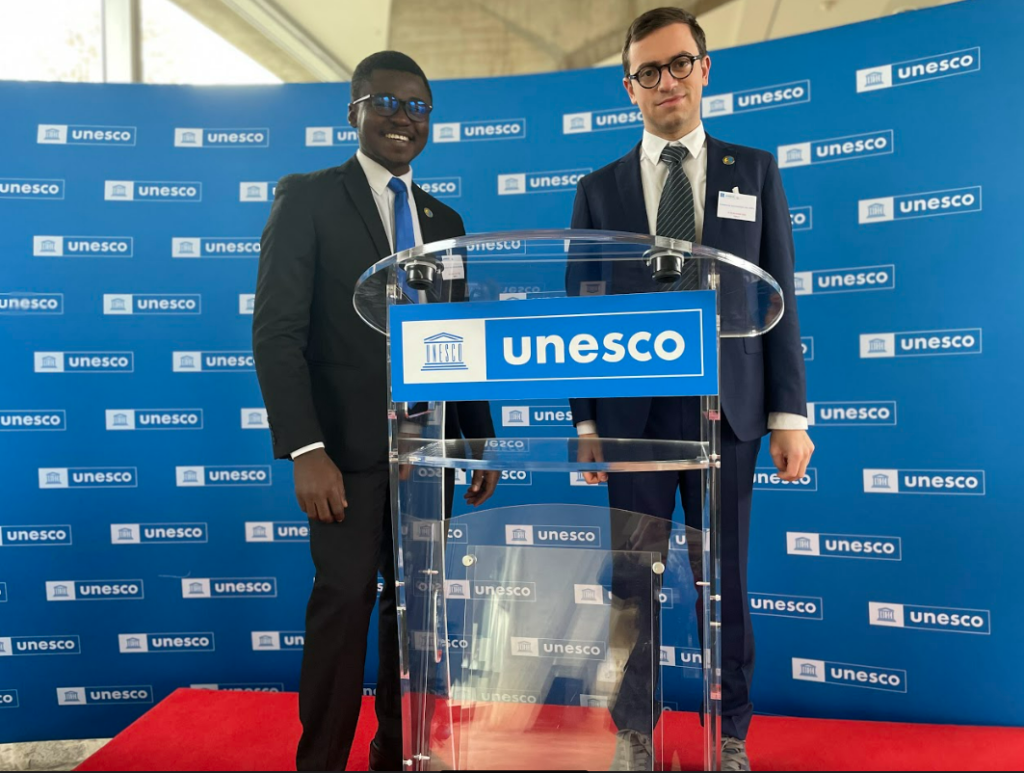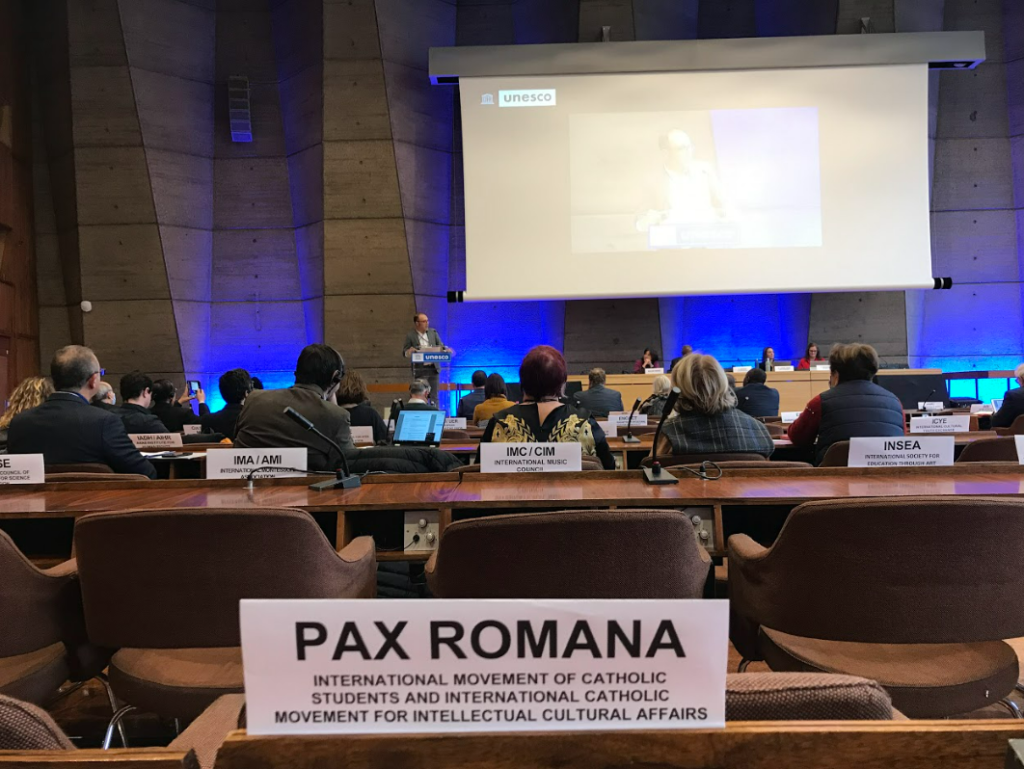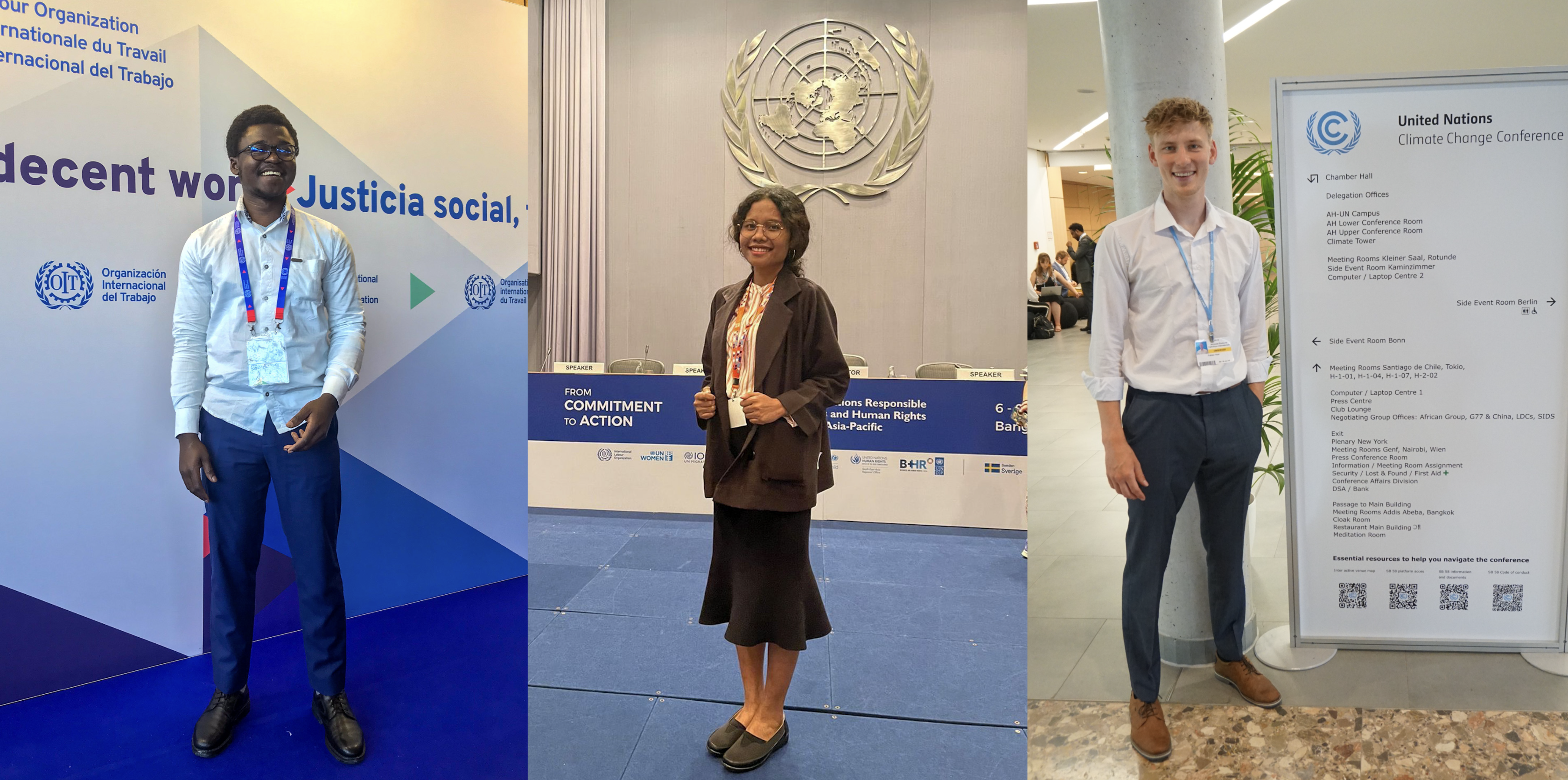
IMCS Pax Romana representation in Geneva (on Labour), Bangkok (Business and Huam Rights) and Bonn (Climate Change)
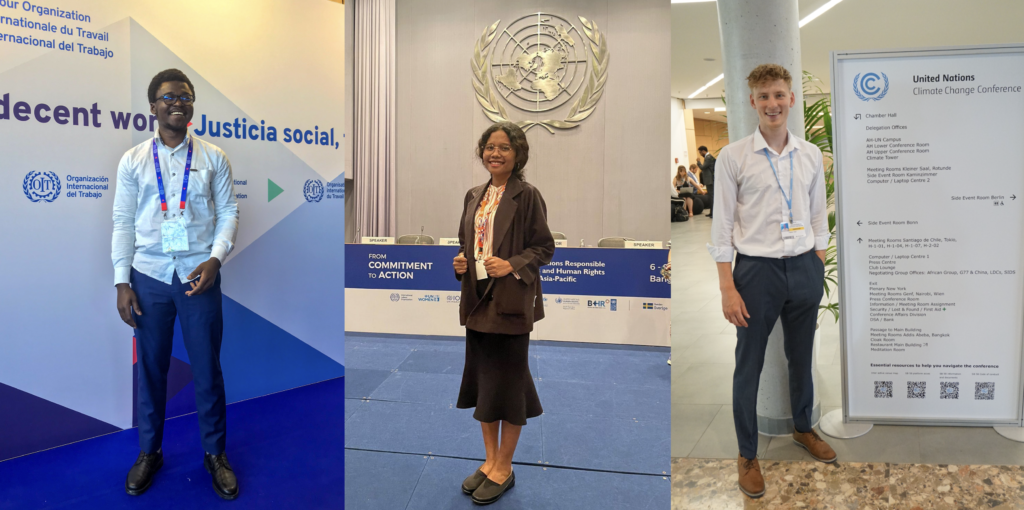
While we have been preparing for the World Assembly regarding the study session on Climate Change and how young people (students) are contributing in addressing this global climate emergency, IMCS Pax Romana representatives have also been following, participating and presenting our contributions at the following conferences concurrently happening this week.
In Geneva, the Secretary-General of IMCS Pax Romana, Victor Ayertey is participating in the 111th Session of the International Labour Conference (ILC) 2023 under the theme “Advancing social justice, promoting decent work”. We have been following the discussions of the Committee on Just Transition and other Committees. Though the final resolutions and recommendations are yet to be published, we hope that our recommendations in the joint statement with the International NGOs focusing on the future of social dialogue shall also be considered. Discussing labour issues and social justice in relation to the climate change and how it is important to consider these elements to advance the actions for climate change. The Future of Social Dialogue from the Perspectives of International Non- Governmental Organisations (INGOs) intends to contribute to the transformation of the social dialogue in order to ensure that those who are marginalised, vulnerable and unrecognised in the informal economy can participate meaningfully and make full use of social dialogue as a public good. It is a first response to the Director General’s Global Coalition for Social Justice, which will be launched on the occasion of the 111th Session of the International Labour Conference.
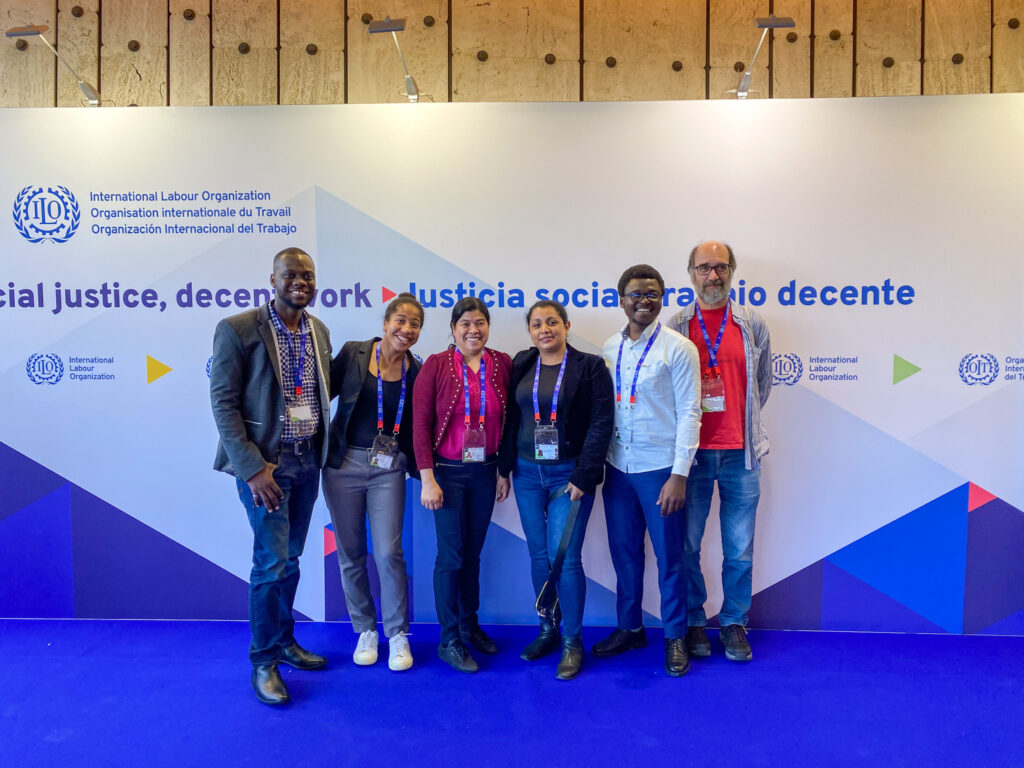
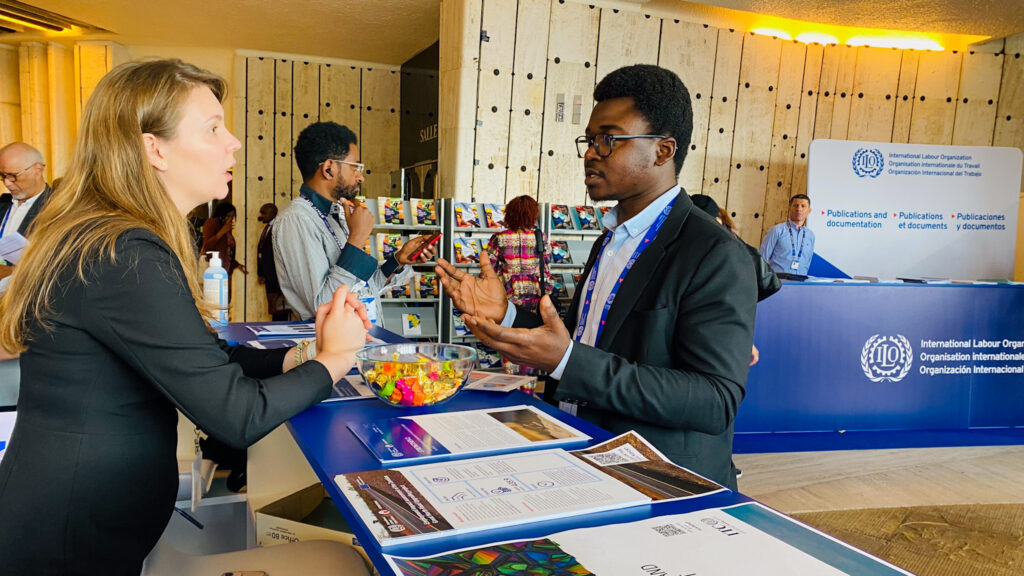
IMCS Pax Romana participated in workshops focusing on specific thematic areas such as poverty, migration, socio- economic crisis aiming to prepare a roadmap for our future engagement on social justice and the promotion of work as care. Msgr. Anthony Ekpo, Under Secretary, Dicastery for Promoting Human Integral Development and Msgr. John Putzer, Counsellor at the Holy See Mission to the UN in Geneva, were part of the workshops moderated by Pierre Martinot-Lagarde, Special advisor on religious affairs, International Labour Organization – ILO under the theme “Social justice in the world of work and beyond: from common values to common engagement and action”. As organized by International Catholic Migration Commission (ICMC), “The Future of Work – Labour after Laudato Si’” Project cooperated with Catholic-Inspired Organisations (CIOs), together with other faith actors and COMECE, Aggiornamenti Sociali, CERAS, WCC, ATD Quart-Monde, CIOs, with the participation of WIEGO and international networks of workers in the informal economy.
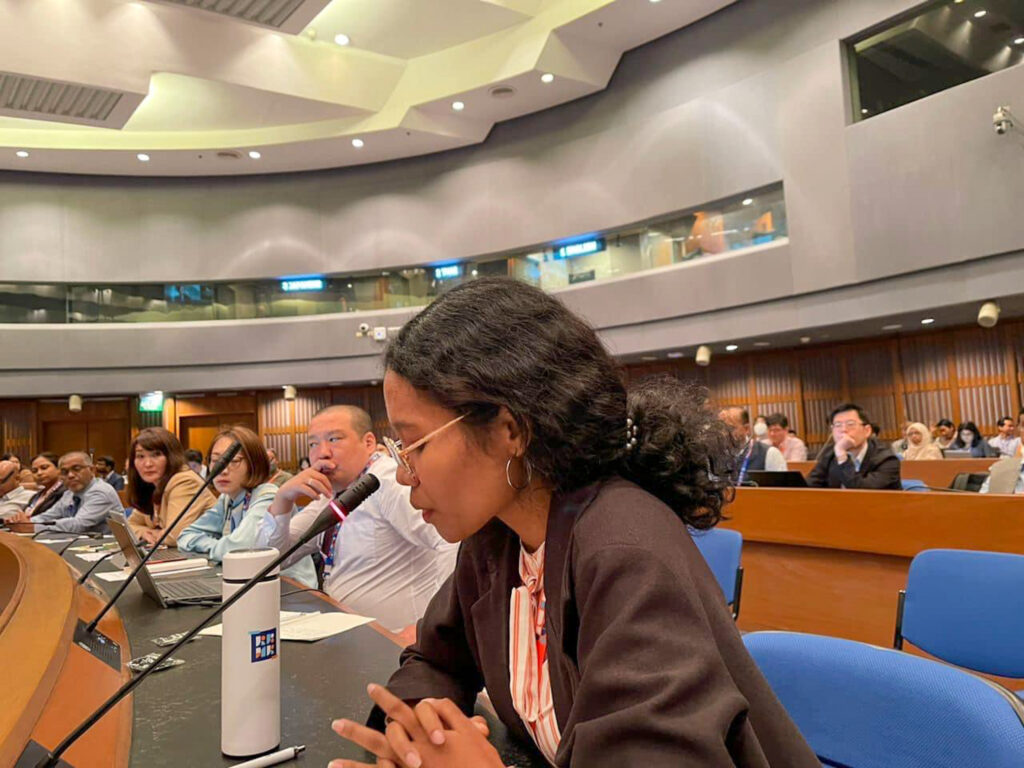
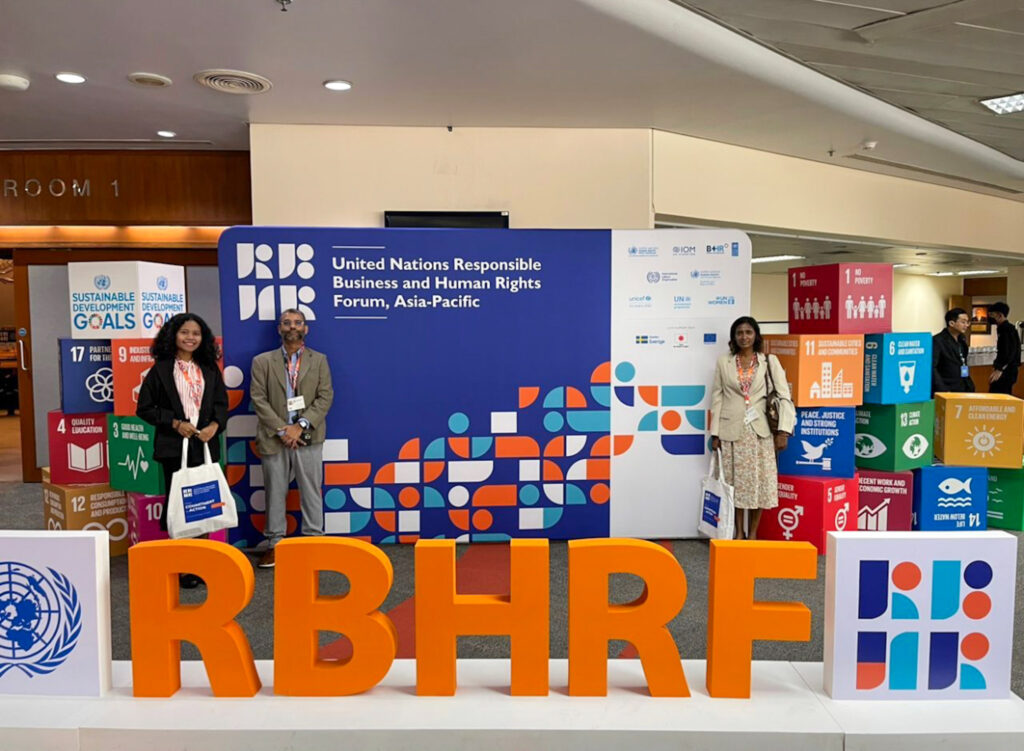
In Bangkok, Bertha Samponu, the Asia Pacific coordinator of IMCS Pax Romana together with our partner from North South Initiative participated in the United Nations Responsible Business and Human Rights Forum, Asia-Pacific Under the theme “From Commitment to Action”. The 5th UN Responsible Business and Human Rights Forum aims to build on ongoing dialogue on the issues, challenges, and sectors the business and human rights community needs to act upon and what needs to be done to ensure commitments are put into action. In reference to the concept note, the Forum brought diverse interlocutors to discuss, debate, and share insights on issues ranging from the regulation of global supply chains and the implications of corporate sustainability due diligence to the recently recognized right to a clean, healthy and sustainable environment, for example. There were also highlights on issues, challenges, and sectors that the BHR community needs to act upon, including the intersection of climate-induced labour migration, biodiversity and BHR, the responsibility of development financiers, and the role of micro-, small, and medium-sized enterprises, among others. Bertha also joined the sessions about Gender Equality and Women Empowerment in accelerating the climate action agenda as facilitated by the United Nations Environment Programme (UNEP).
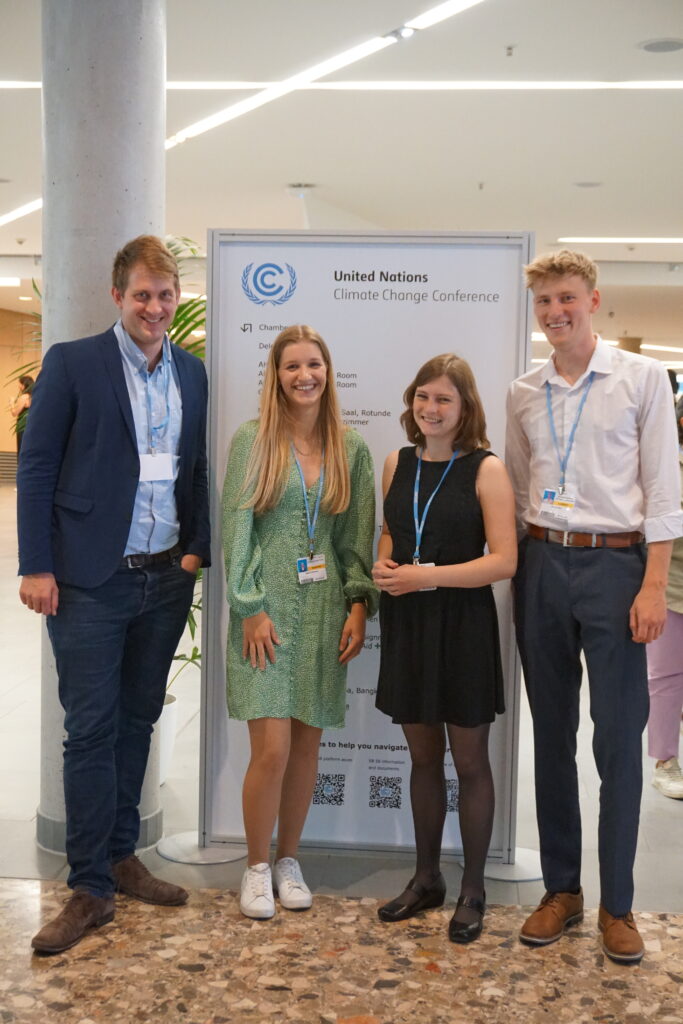
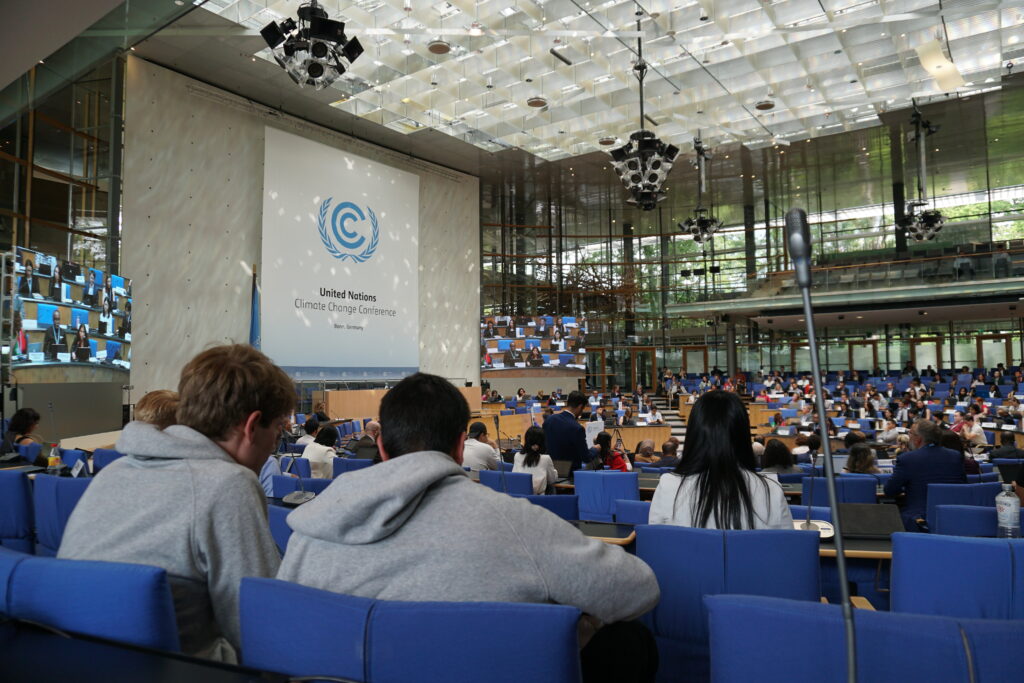
And then in Bonn, our representative from the JECI-MIEC Coordination, Fabian Abel from Germany has been following the 58 session of the Bonn Climate Change Conference Subsidiary Body Meetings (SBs) in relation to Climate Change. Through the Bonn Climate Change Conference, we hope that there would be an increase in the transparency and accountability of climate action for minimizing the impacts that climate change is having on the agriculture and food security sectors in most affected countries. And there will be decisions towards operationalising the new loss and damage fund and funding arrangements at COP28. There was also a debate about tokenism, how it continues to impact youth participation and listening to youth voices on matters of interest such as the Climate Change. At the Youth Action meeting, one of the concerns which affects youth participation in these conferences is about Visa Accessibility. Referencing the Open Letter, it has always been the case that “African and South and Southeast Asian delegates especially face long, intransparent visa procedures that cause rising costs and limitations in preparations, while often visas are not approved in time preventing the attendance altogether”.
In sum, we understand that the factors of Labour, Business and Human Rights all have an impact of the effects of Climate Change and clearly, they are all interconnected. Hence, going forward, we are building our capacity as young people and extending our networks for collaboration in addressing the rising issues in all these sectors from the youth perspective.
The Future of Social Dialogue
Perspectives of International Non- Governmental Organisations
(INGOs)1
Published on the occasion of the 111th Session of the International Labour Organisation, 5.- 16 June 2023 in Geneva, Switzerland.
Rationale
This paper intends to contribute to the transformation of the social dialogue in order to ensure that those who are marginalised, vulnerable and unrecognised in the informal economy can participate meaningfully and make full use of social dialogue as a public good. It is a first response to the Director General’s Global Coalition for Social Justice, which will be launched on the occasion of the 111th Session of the International Labour Conference. The paper intends also to commemorate 30 years of engagement of Kolping International at the International Labour Organisation (ILO) in 2023 exemplifying the continuous support of INGOs, particularly Catholic Inspired Organisations, for the ILO’s strive for social justice through decent work.
Background
The world of labour faces grave challenges and is changing rapidly. On the one hand, digitalisation forces workers to permanently increase the skills and demands flexibility, supported by the need for green and sustainable economy. On the other hand, the still existing paradigm of growth fosters global market competition, which causes forms of modern slavery and exploitation by marking labour as cost factor. Both developments, however, jeopardize the fundamental labour rights and contradict the recognition that only social justice leads to peace in the world. Since Labour is not a commodity as confirmed by the ILO Centenary Declaration of 2019, decent work is a precondition for social justice. The Centenary Declaration also reconfirms the contribution of social dialogue to the overall cohesion of society.(2)
Furthermore, social dialogue is one of the four pillars of the ILO-Decent Work Concept(3). Besides the implementation of the fundamental rights at work, an effective and encompassing social protection scheme and favourable employment policies, social dialogue is another precondition for power equilibrium between employers and workers. Though always highlighted as the stronghold against crisis while praising countries with traditionally strong social partners as economically and socially resilient, social dialogue is frequently jeopardized and undermined in sectors, which are labour intensive (service sector, construction, care work) and countries, which are weak in participatory structures. Particularly in countries where the informal economy prevails, social dialogue lacks efficiency because of low percentage of organised workers whereby the majority of the work force cannot access negotiation tables. Since the 70’s of last century, the ILO looks into the informal economy as a labour reality for the majority of the global work force. With the Home Work Convention C177 (1996)(4) the social partners negotiated a labour sector in which mostly informally working women earn their living. At that time, only few civil society movements and labour oriented NGOs were invited to the negotiation parties and engaged in ratification campaigns. Lately, the adoption of the C189 Decent work for Domestic workers (2011)5 proofed that social partners need the expertise of stakeholders when it comes to implementing the precious and powerful slogan ‘Nothing about us without us’. INGOs with their local membership- based constituencies and affiliates are often closer to the informal workers than the unions. The reasons for this fact are multiple and rooted in the origin of the groups being self- aid groups, church and faith based organisations sui generis or backed by those. Hence, from the perspective of INGOs they are usually the only ones siding with the informal workers. They often provide access to their members for unions and promote the right to organise. Faith based INGOs expressed this understanding of their role of INGOs in social dialogue in a statement to the social partners and the new Director General of the ILO after the 110th session of the ILC in 2022.6
Nowadays, the motto ‘Nothing about us without us’ proves to be even more significant in the broader context of protecting civic space and participation. Apparently, over the last two decades the fight against terrorism, the financial, climate, health crises and imperialistic attacks provide many causes for many countries to minimise the access of civil society to meaningful participation in shaping the future of their societies. Workers being citizens and consumers as well as caretakers of resources and maintainers of their societies are part of civil society and also part of the economic world. Therefore, social dialogue is a guarantor for social peace and also a fundamental element of civil society participation.
The ILO and INGOs
Social dialogue has been under pressure for many years. Therefore, it was and is a long-term concern for INGOs. In all discussion around the agenda of the ILCs, INGOs highlight the need for social dialogue, provide inputs for rethinking social dialogue facing the challenges for decent work and social justice. INGOs have given continuous support to social partners, while safeguarding the social dialogue. While acknowledging the most efficient and significant structure of tripartism in the ILO, the INGOs at the ILO consider themselves as organisations rooted in the grassroot movements of their members and national constituencies. They take up the immediate concerns of their members regarding matters of ecological, economic and social dimension. Thereby, they support the criteria for INGOs registered at the ILO being member based and globally working around all dimension of labour and work. Over the years, many INGOs have built relations to unions on national and international levels, so that representatives are integrated in the national delegations of unions, being advisors and negotiators for specific issues as was experienced with the Homeworkers (C177), the Domestic Workers (C189) and on the concern of sexual harassment (C190)7.
In the past INGOs have also proven to be important supporters for the ratification processes, especially on Conventions concerning workers in the informal economy since those are often members of INGOs and International Labour Movements. When it comes to further advocacy work, INGOs rooted in the informal economy, contribute to discovery and awareness rising on labour law violations and provide access for unions to vulnerable groups while ensuring their protection against arbitrariness. Their international structure provides access to far-reaching platforms for dialogue. Critical aspects, like the often very specific approach of INGOs, which does not consider the broader context of the world of work, needs attention. By claiming their own right to speak and to participate in negotiation, the negotiation power itself, if not concretized with the social partners is jeopardized. Furthermore, INGOs themselves sometimes do not conform to the values of labour laws and policies due to financial concerns and unawareness of their responsibility as employers. The legal settings in the ILO member countries where INGOs work sometimes foster the lack of credibility or – on another level – hinder the participation of INGOs in social dialogue altogether. Nevertheless, there is benefit in a trusting and mindful cooperation with social partners. Work around the ILO brings INGOs and social partners together and gives opportunity to do advocacy work. This advocacy work originates from the grassroot level. Its mandate to give a voice to the poor and the vulnerable on international level enables participation in ecological, economic and social aspects of the future of work. Using the possibilities the ILO provides gives INGOs the chance of being heard by social partners and governments. Making use of this chance on international level encourages INGOs to improve their relations to social partners also on the national level. It also has the potential to encourage social partners to take their place in the sharing of social difficulties in order to define standards of decent work. Common and individual statements, reports, results of discussions and workshops are useful to inform, train and empower members and other partners. They are as well a capacity training for negotiation skills, campaigning and legal issues.
This not only gives motivation to engage on international negotiation tables to the leaders of INGOs but first and foremost to the broad member base struggling with the improvement of the world of work on the grassroot level.
Recommendations for an efficient and meaningful social dialogue
The Global Commission on the Future of Work, which concluded its work before the centenary anniversary of the ILO in 20198, emphasized social dialogue to be a public good. In the rapidly changing world of work with various forms of precarious work in the digital and service oriented sectors, this public good has to be safeguarded and the awareness of it revived, social dialogue remodeled.
A unique and outstanding contribution to the 100 years anniversary of the ILO and the future of social dialogue was the ‘Shaping the Future of Work’ Document of Churches and Catholic INGOs in the European Union, published on 27th November 2018.9
The following recommendations do not only reflect the deliberations of this initiative but also the results of many years of debate around this topic.
RECOMMENDATIONS
What the ILO should do:
On national level
- Introduce a contact point on national level at ILO office
- Initiate round tables before ILC on the upcoming agenda
- Promote dialogue between different actors in all ILO member countries
At the International Labour Conference and ILO initiatives
- Increase speaking time for INGO I n the committees
- Ensure presence and effective participation of INGOs, esp. in the Global Coalition for Social Justice
- Limit the overall size of delegations in presence and facilitate virtual participation
What Social partners could do
- Initiate national dialogues on the agenda of upcoming ILC
- Install contact points for easy access and exchange on reports
- Consider opening the delegations to NGO participation as advisors on a regular base
What INGOs could do
- Mobilise their national members to have regular relations with the Union Federation
and Employers’ Federation - Mobilise their members to join their international delegations to ILC
- Engage in regular exchange with the Labour relevant departments of governments
- Build awareness on work of the ILO as part of global governance
- Support the national affiliates and members to build contacts and networks with the
social partners and with each other.
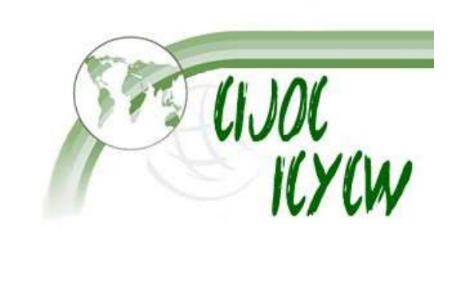
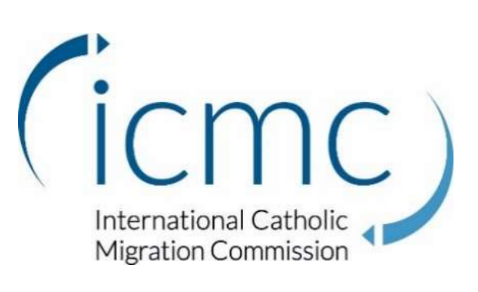
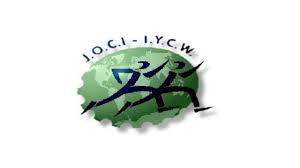
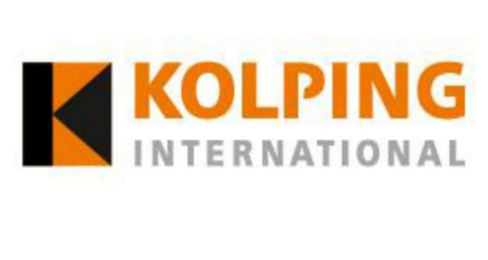
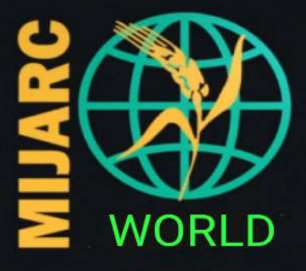
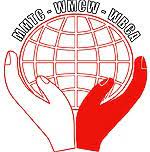

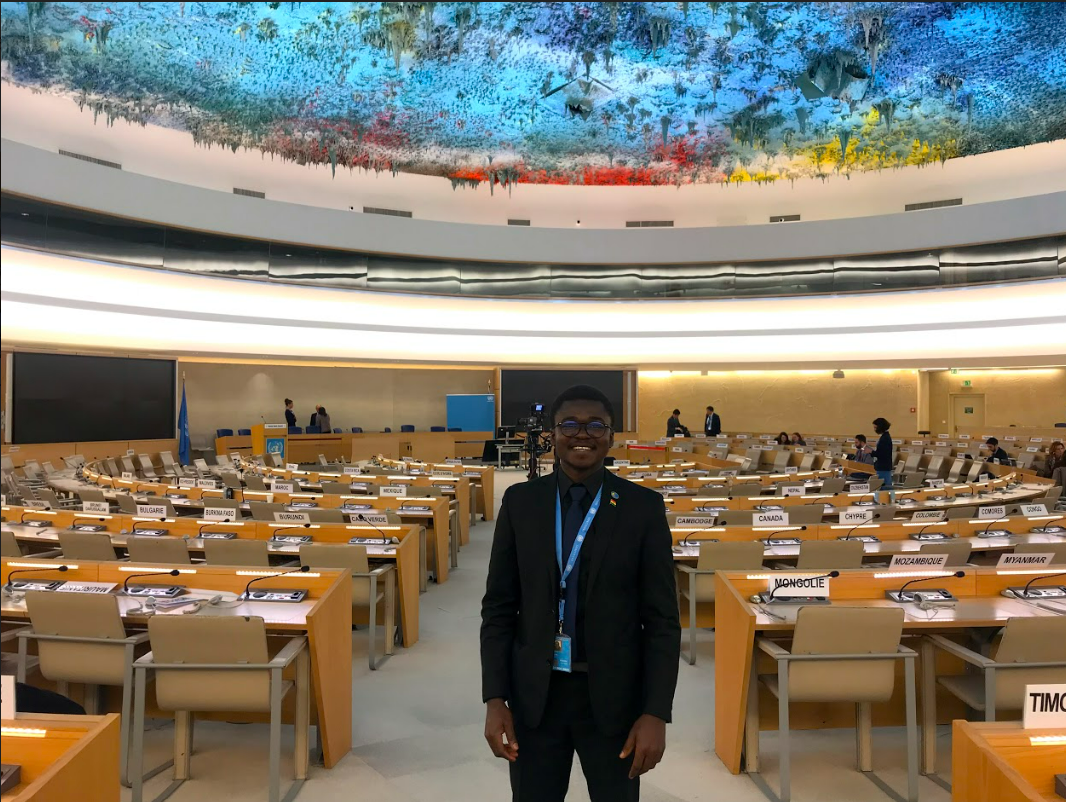
Human Rights Council 52 Annual Panel Discussion
The Secretary-General of IMCS-MIEC Pax Romana, Victor Ayertey participated in the 52nd session of the Human Rights Council Annual high-level panel discussion on human rights mainstreaming as a sign of support for the representative, Christine Salloum, of the International Coordination Meeting of Youth Organizations (ICMYO). She represents ICMYO within the High-level Steering Committee of the United Nations Youth Strategy 2030. The theme panel was “A reflection on five years of the United Nations Youth Strategy (Youth 2030): mapping a blueprint for the next steps”. And during the panel session, the ICMYO representative shared some highlights about the challenges and the best ways to ensure accountability for meaningful participation, and partnership, from the youth perspective when it comes to implementing the UN Youth Strategy.
Christine stated that “For young people, to be accountable and take responsibility towards society means that one must exercise the right to be part of the decision-making process, to work in partnership with decision-makers and boards and be fully engaged. And acknowledging the importance of youth needs assessment from our knowledge, experiences, and perspective of youth helps in addressing the issues of the highest priority. Most importantly, the recognition of the value of investing in and empowering youth is unavoidable. Youth accountability is part of community engagement and the overall accountability that we need to achieve the Youth 2030 strategy. It is a way of working that recognizes and values community members as equal partners and the statement of working with and for youth. It makes sure their opinions are heard and used to design and guide the results and goals. Equal and equitable access to funding by youth organizations to build youth capacities and promote youth rights to ensure meaningful participation across all UN systems. More youth should have the opportunity to participate in the HRC processes and mechanisms.
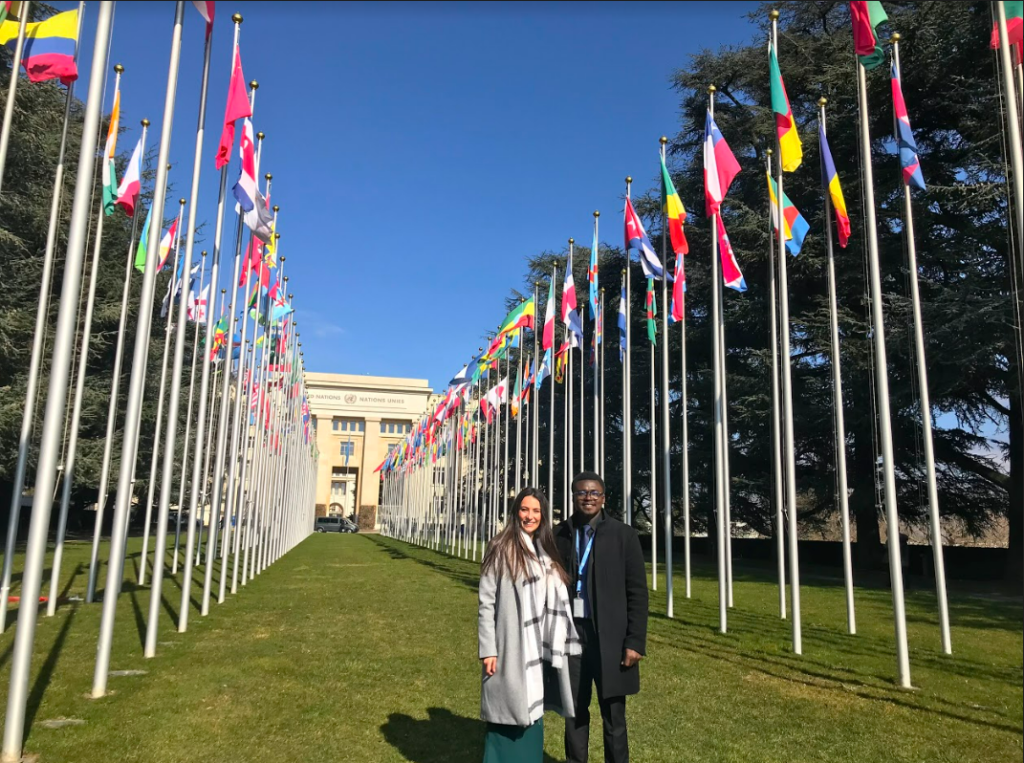
In addition, some speakers also shared their concerns to reiterate that today’s young people are facing multiple challenges, exacerbated by the COVID-19 pandemic. There was a need to strengthen the partnership with young persons to achieve positive transformative change. Notwithstanding these challenges, young people were important agents of change, with enormous capacity to change the world for the better, and yet, globally, they faced enormous challenges to achieving their human rights. The United Nations had an obligation to provide a safe future, and in order to make progress in these areas, the United Nations Youth Strategy was a positive step to provide means to allow young people to participate in decision-making for their future”.
In sum, Christine advocated that there should be the presence of young people in future sessions of the Council. And IMCS-MIEC Pax Romana continues to advocate for young people’s participation, collaboration and involvement in the decision-making process, implementation and evaluation of projects spearheaded by United Nation Agencies.
Note: IMCS-MIEC Pax Romana is a member of the network of youth-led organizations under the umbrella of the International Coordination Meeting of Youth Organizations (ICMYO).

On the Environment Agenda
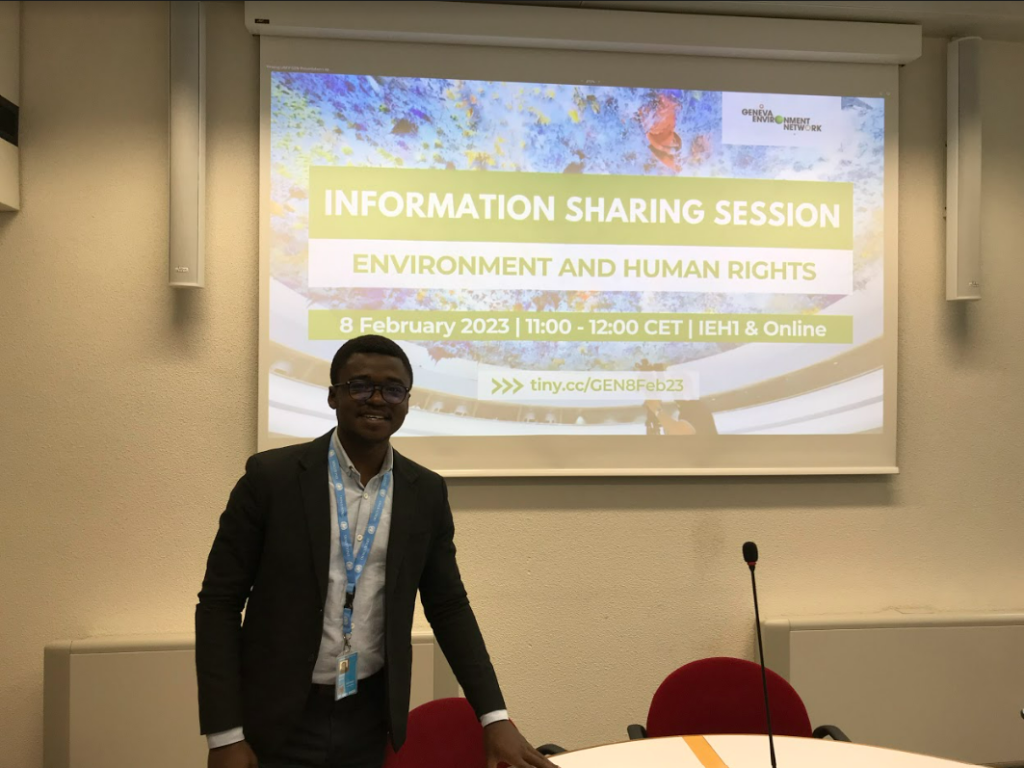
On the environment agenda, IMCS Pax Romana joined the Geneva Environment Network (GEN) for “Human Rights and the Environment: HRC52 Information Sharing Session” at the International Environment House. The Secretary-General, Victor Ayertey, represented the Movement during the session as we continue to champion the healthy environment agenda. As such, we hoped that #HRC52 will take pragmatic decisions to address the issues of climate change, from the #humanrights perspective, towards a healthy environment for all, and our concerns of young people.

The broader push is to highlight interlinkages between human rights and environment issues, particularly as seen in “pure consensus” decision to include the Right to Healthy Environment at climate change #COP27 and biodiversity #COP15. Information from UNEP indicated that they have been working more on human rights issues, underscoring their engagement at #HRC52, including the launch of handbook on engagement with human rights mechanisms and Stocktaking of recommendations of treaty bodies, Universal Periodic Reviews (UPR) and Human Rights Council on environmental issues.
It includes reviewing the reports of actions taken by member countries and many other organizations such as the NGOs, Inter-governmental and International Organizations, and assessing the future possibilities based on the resolutions for the environment from the human rights perspective.
Global Study Session & World Assembly
According to the statutes of IMCS/MIEC Pax Romana, its World Assembly, the highest decision-making body of the Movement, is scheduled to take place this year.
- Theme: “Global Climate Emergency – Capacity building of tertiary students to be advocates for environmental, social, cultural, political and economic justice”
- Venue: International Youth Training Centre (IYTC), Chiang Mai, Thailand
- Date: 3rd to 9th of July 2023
Considering the threat of climate change to all life and mother earth, IMCS Pax Romana through the theme as mentioned above shall conduct global study session in response to the emergency. Within the precincts of the Global Study Session, IMCS Pax Romana is expecting to achieve the following objectives through its collaborations;
- Awareness building on climate change and global climate emergency
- Equipping participants with necessary analytical tools for understanding issues
- Skill building to respond to climate change-related issues
- Creating a global plan of action of 4 years
- Getting the members of IMCS network and partner networks engaging in local, national and international climate change advocacy and actions.
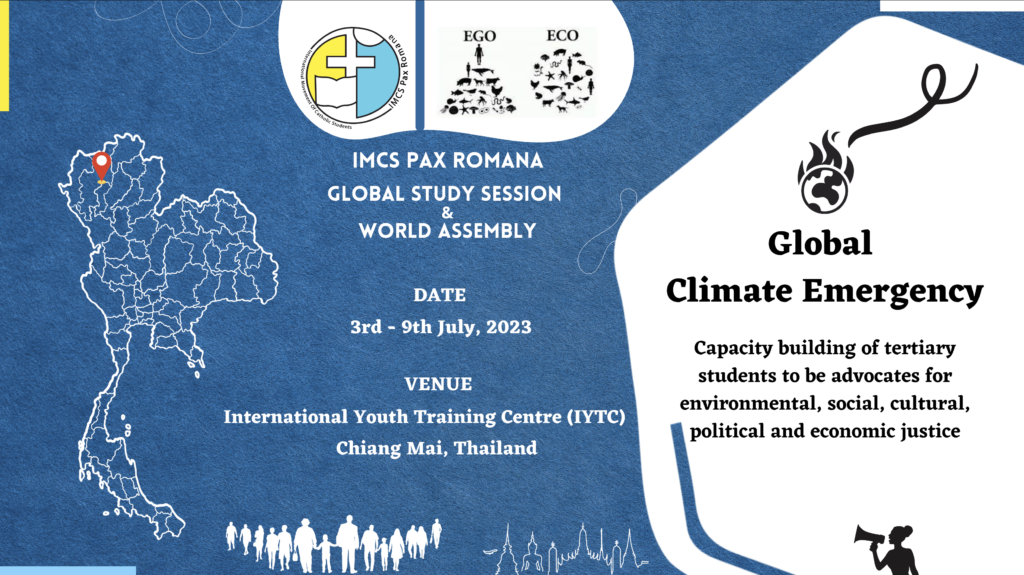
The study session shall be followed by the statutory session which provides the necessary guidelines to Global Catholic Tertiary students to make the organizational decisions. This session is considered an Assembly and the following are some of the objectives to be achieved through the statutory session.
- Election of International President, Secretary General and Ecclesiastical Assistant.
- Evaluating IMCS Pax Romana as a Movement and making necessary decisions for addressing the issues and the needs of the Movement at National, Regional and International levels for the coming 4-years.
- Reviewing IMCS General Statutes and making necessary amendments.
- Designing and approving IMCS Pax Romana Plan of Action 2024 – 2027
As a Movement, we understand that “Climate change is an existential threat to all life and the earth”, and we cannot stress this enough. Hence, to reinforce our climate actions, and set in motion strategies we’re gathering students and partners in Chiang Mai, Thailand in July.
For further information about sponsorship, participation or collaboration, kindly contact IMCS-MIEC Pax Romana via office.imcsmiec@gmail.com or office@imcs-miec.org

Representation at the 13th Pan African Assembly
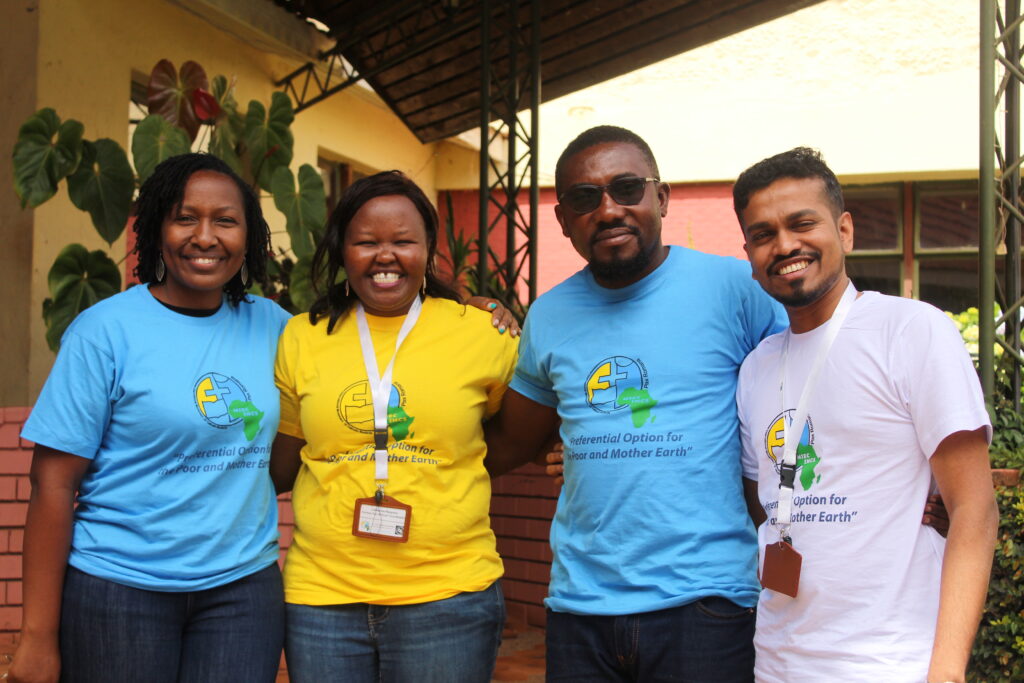
The 13th Pan African Assembly was held in Nairobi, Kenya from 10th to 16th December 2022, under the theme of “Celebrating the journey of IMCS in youth transformation and innovation across Africa within the context and impact of Covid-19 Pandemic”. Assembly was participated by delegates from more than 30 countries of the African region as well as former regional coordinators, former national leaders, international chaplain Fr. Jojo Fung SJ, Asia Pacific coordinator William Nokrek and International President Ravi Tissera.
The International President and Asia Pacific coordinator contributed to the session as speakers of a panel discussion under the theme of “Youth Leadership in Africa: Youth and SDGS” and they brought the perspectives from their respective offices to the discussion. International chaplain shared his expertise through a session under the topic of “Environment, Common Home and Mother Earth: Leveraging on social platforms for a good cause and impact”. Following the statutes of IMCS Pan Africa, an election was held to elect new coordinators for the region.
Pardington Nhundu from NMCS Zimbabwe was elected as the anglophone coordinator and Dr Stanislas Kpatcha N’djao was elected as the francophone coordinator for the mandate of 2023 – 2026.
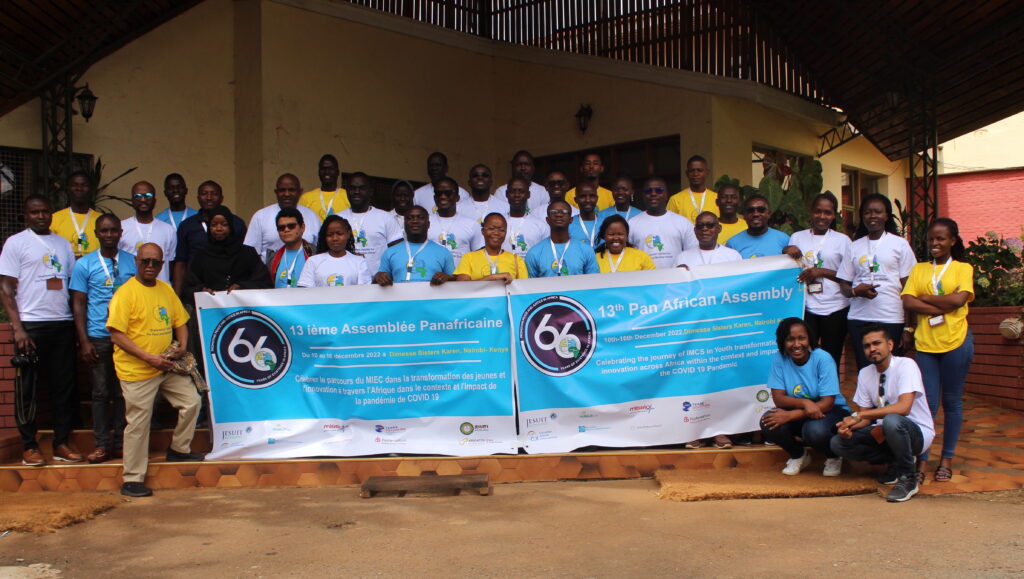
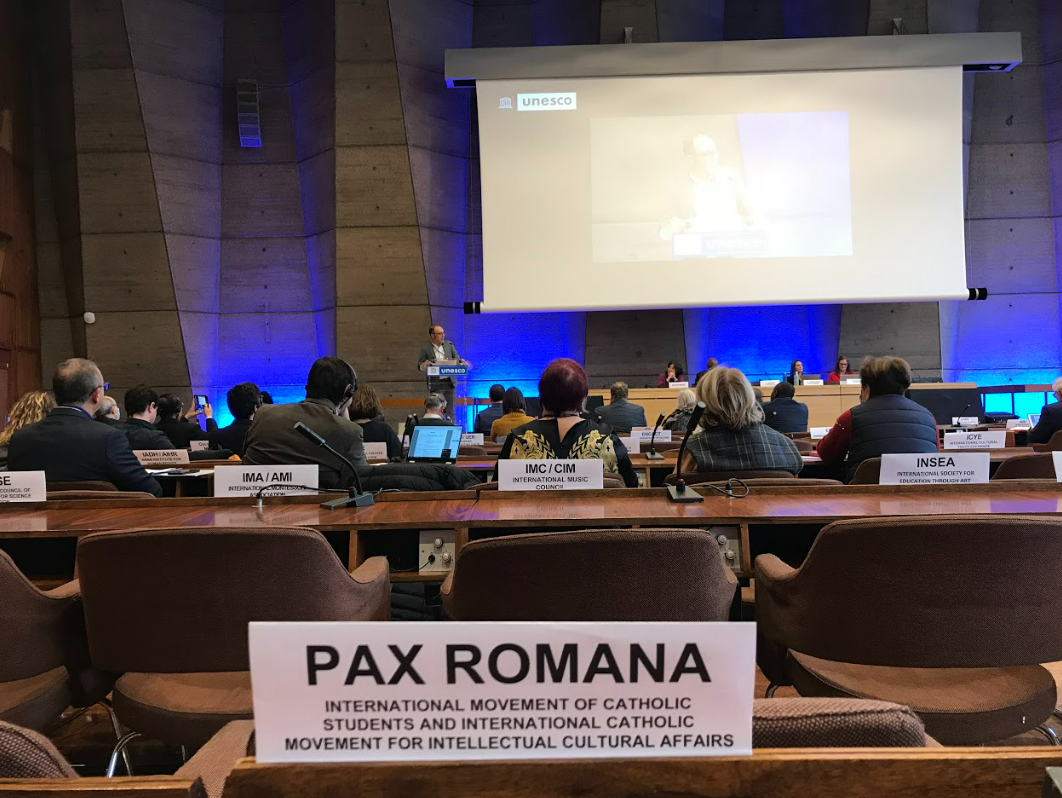
NGO-UNESCO Liaison Committee International Conference of NGOs 2022
As part of the “Multistakeholder approaches to achieve the SDGs: Opportunities and challenges for NGOs”, Pax Romana represented students at the International Conference of NGOs at the UNESCO Headquarters in Paris. Our interest is more than just the conversation and in the systems that facilitate and makes available the resources to support young people who take action. The 2022 International Conference of NGOs was held at the UNESCO Headquarters and online from 14-16 December 2022. Our discussion was guided by the theme “Breaking barriers – What role for civil society organizations towards a sustainable future?”. With all the NGOs presents and those who joined online, we reviewed and approved the activity and financial report of the previous team, brainstormed the work programme for the next two years and discussed the outcome of the survey on the implementation of the Directives concerning UNESCO’s partnership with NGOs. Member states cannot achieve the SDGs alone, hence it is crucial to be stronger together by working with UNESCO National Commissions. It is also because of the evolving role and future of civil society organizations (CSOs) and partnerships in the global movement for the transformation of education in a fast-changing and challenging world”. We co-create and the impacts are beyond the point where the Global North give lessons to the Global South about the best ways to address the challenges we face as a world.
We continue to seek room to collaborate with other like-minded NGOs across the world to make society better through education “Since wars begin in the minds of women and men, it is in the minds of women and men that the defenses of peace must be constructed”

IMCS-MIEC Pax Romana joins JEC Spain’s 75th Anniversary
JEC Spain celebrated its 75th anniversary and the IMCS Pax Romana was invited to join them and share the joy. The International President, Ravi Tissera was present in Madrid on 19th and 20th of November 2022. He contributed to the session as a panelist together with European coordinator Anna Holtkamp and former Spanish regional and international representatives. He shared from the international perspective of the students Movement and how the Spanish students Movement can benefit by collaborating with the catholic students’ global mission.
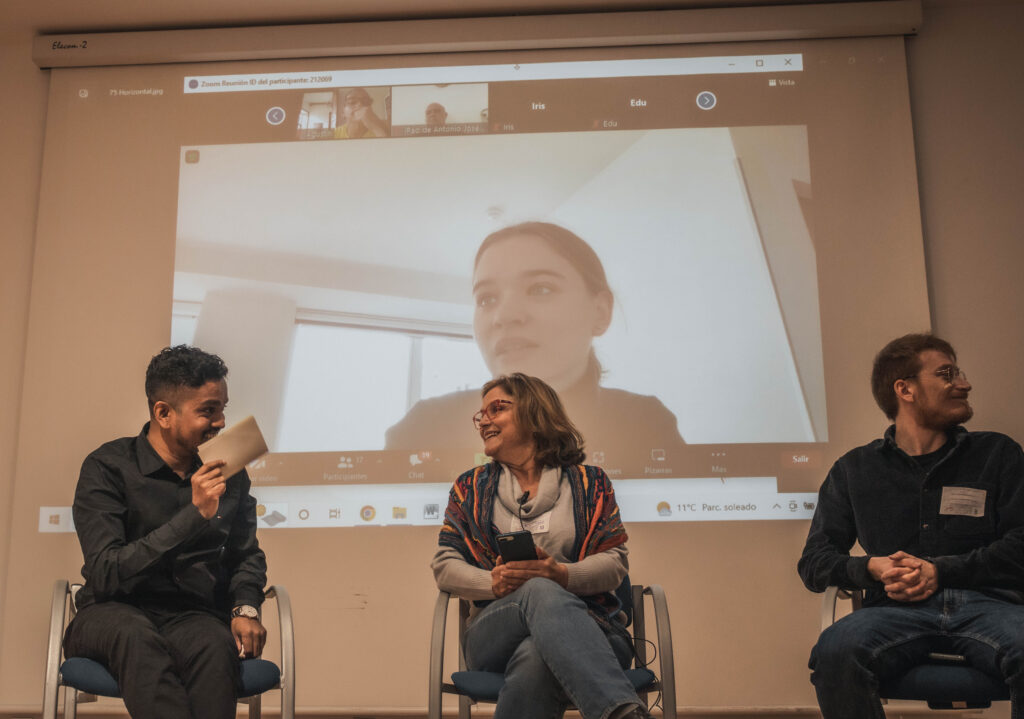
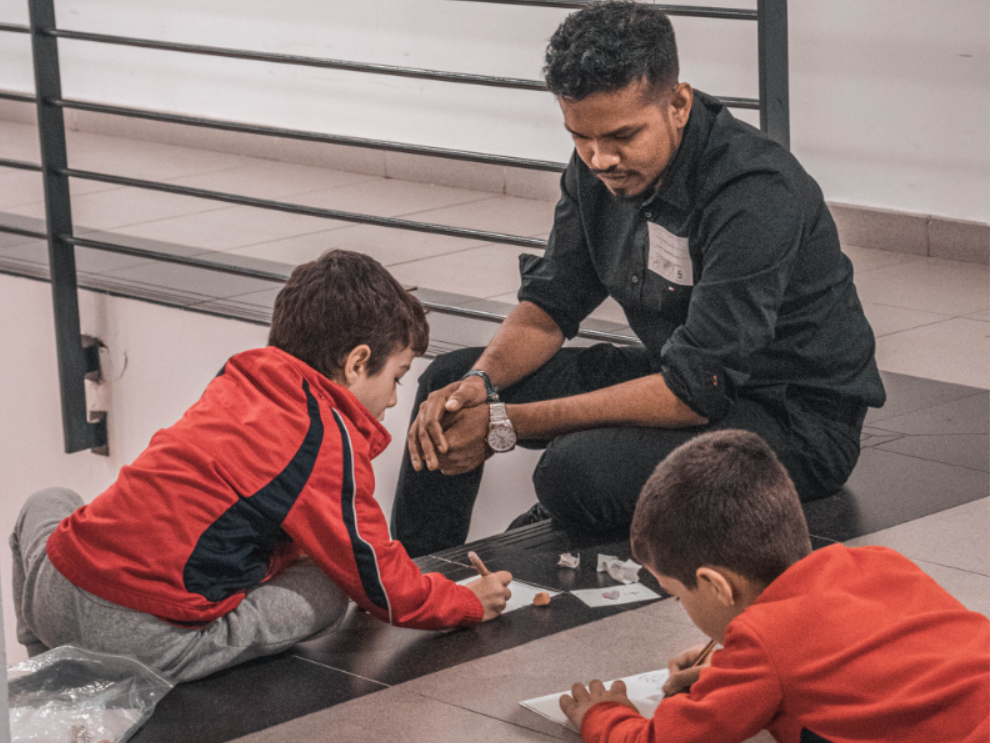
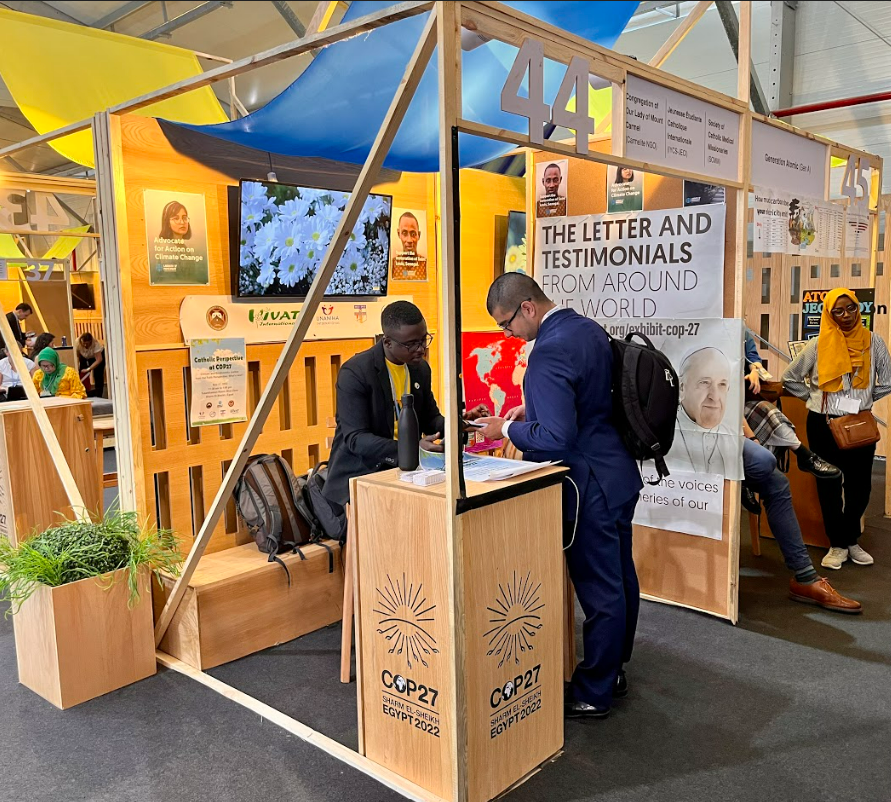
Pax Romana dialogues at COP27 in Sharm El Sheikh, Egypt

Addressing climate change is not a race nor a competition to see who can achieve results faster nor set the record of being the first individual or group or country or institution. It is communal. Climate change is a systemic issue whose effectiveness is intimately linked to the performance of democratically sovereign institutions. To continue amplifying the voices of young people, IMCS Pax Romana together with Soka Gakkai International – SGI -UK, Catholic Youth Network for Environmental, Susttainability in Africa – CYNESA, Brahma Kumaris World Spiritual University – BKWSU, Lutheran World Federation – LWF, World Resource Institute – WRI, United Religions Initiative – URI organized the first Global Interfaith Youth Action on Climate Action side event at COP27 in Sharm El Sheikh on November 15, 2022
Victor Ayertey, Secretary-General of Pax Romana moderated and shared some highlights the contributions of young people, especially from the global south, towards climate action from diverse faith traditions. Pax Romana is addressing the climate change crisis through the Continued Learning ann Action Program (CLAP), Laudato Si’ Commission actions, National Movements country-specific action projects. A message from a youth during the Interfaith dialogue reads “If your house is burning, you don’t plan how to put out the fire. You just put out the fire. We are in an urgent situation that requires action. We know that climate change is real. The science is there, the reality is there for us to see with our own eyes, the lived experience is there. We need action”
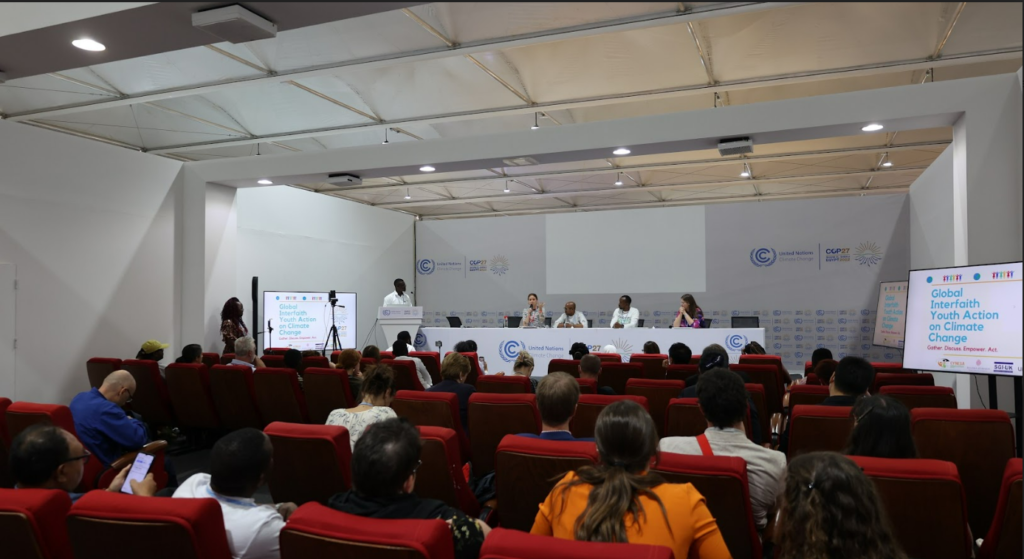
As part of the Catholic Actors present at #COP27 and having met with the Holy See delegation, we presented the following key calls and recommendations in our appeal to for more immediate, inclusive, and impactful climate actions at COP27 and beyond to take care of our Common Home (Laudato Si’):
- The establishment of loss and damage (L&D) finance as a true pillar for climate action must be formalized during the Sharm El Sheikh negotiations.
- The just transition away from fossil fuels towards renewable energy needs to be enacted without delay.
- Current climate financing for co-beneficial, community-based, and ecosystem-based approaches must be enhanced to reduce related risks and vulnerabilities.
- Existing mechanisms and spaces for meaningful inclusive participation in climate policymaking must be enhanced at the global and national levels.
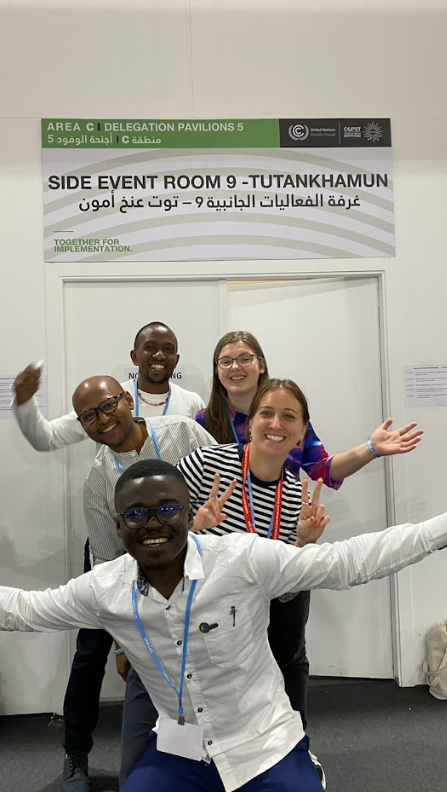

Message to IYCS 75th Anniversary

Dear members of International Young Catholic Students, I bring you the greetings of International Movement of Catholic Students Pax Romana in this special occasion of your global family. As a sister organisation, I would like to congratulate the members and alumni of IYCS global family for the seventy five long years of successful mission of igniting young leaders around the world for the social transformation. In all the past decades IMCS and IYCS have been partners and collaborators for many progressive engagements in national, regional and international levels. As students’ organisations, we together have faced many challenges. And we have become 2 of the few surviving catholic social action movements to still engage with the catholic youth around the world. On behalf of IMCS global family, I would like to take this opportunity to thank past and present IYCS leaders for the meaningful collaboration between the 2 movements which has made the continuation of our missions a possible reality. In the occasion of the climax of the 75th Anniversary, I pray for the IYCS mission for many more years of formation, action and global solidarity for peaceful, just and a sustainable world. God bless IYCS!
By Ravi Tisssera, President IMCS

